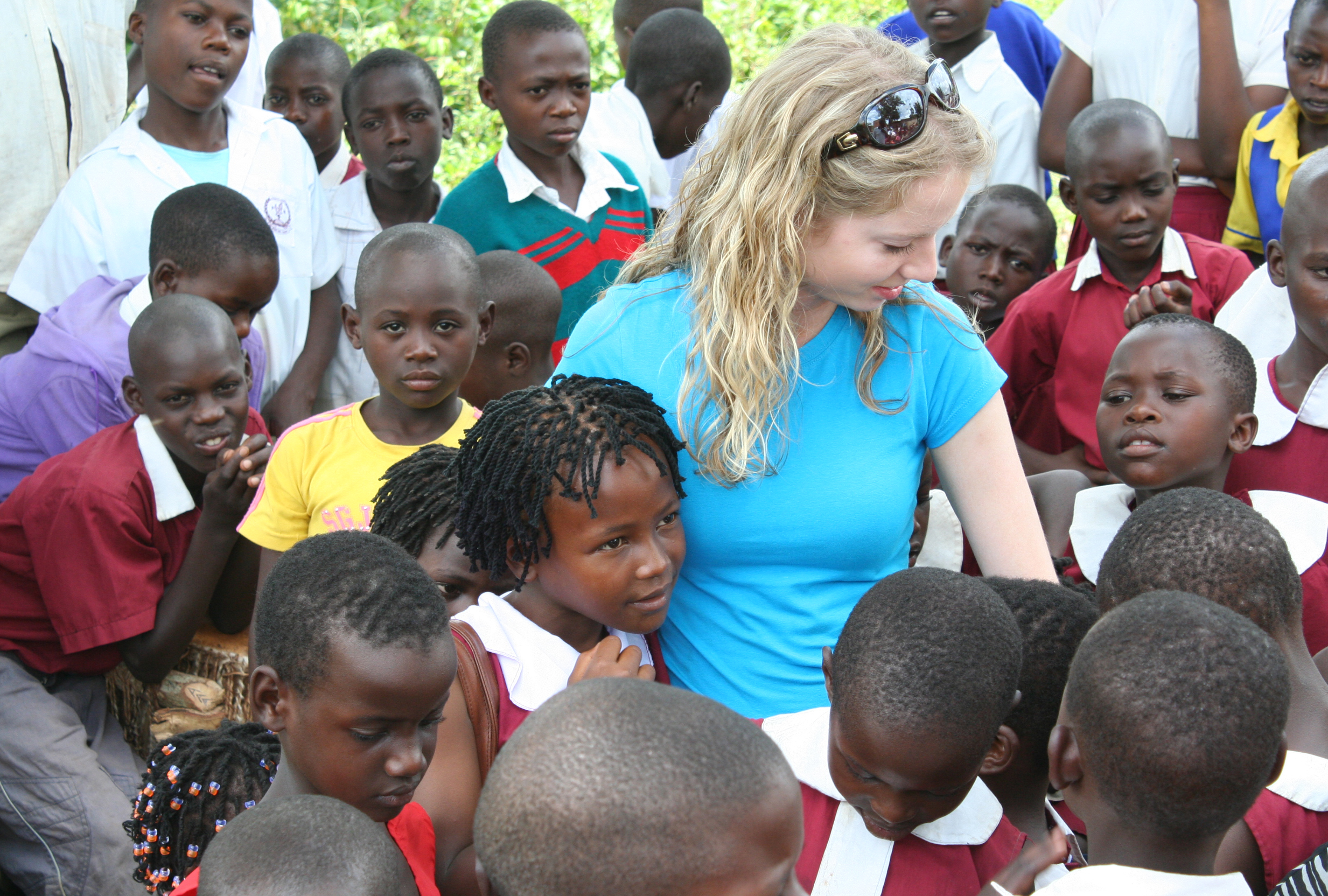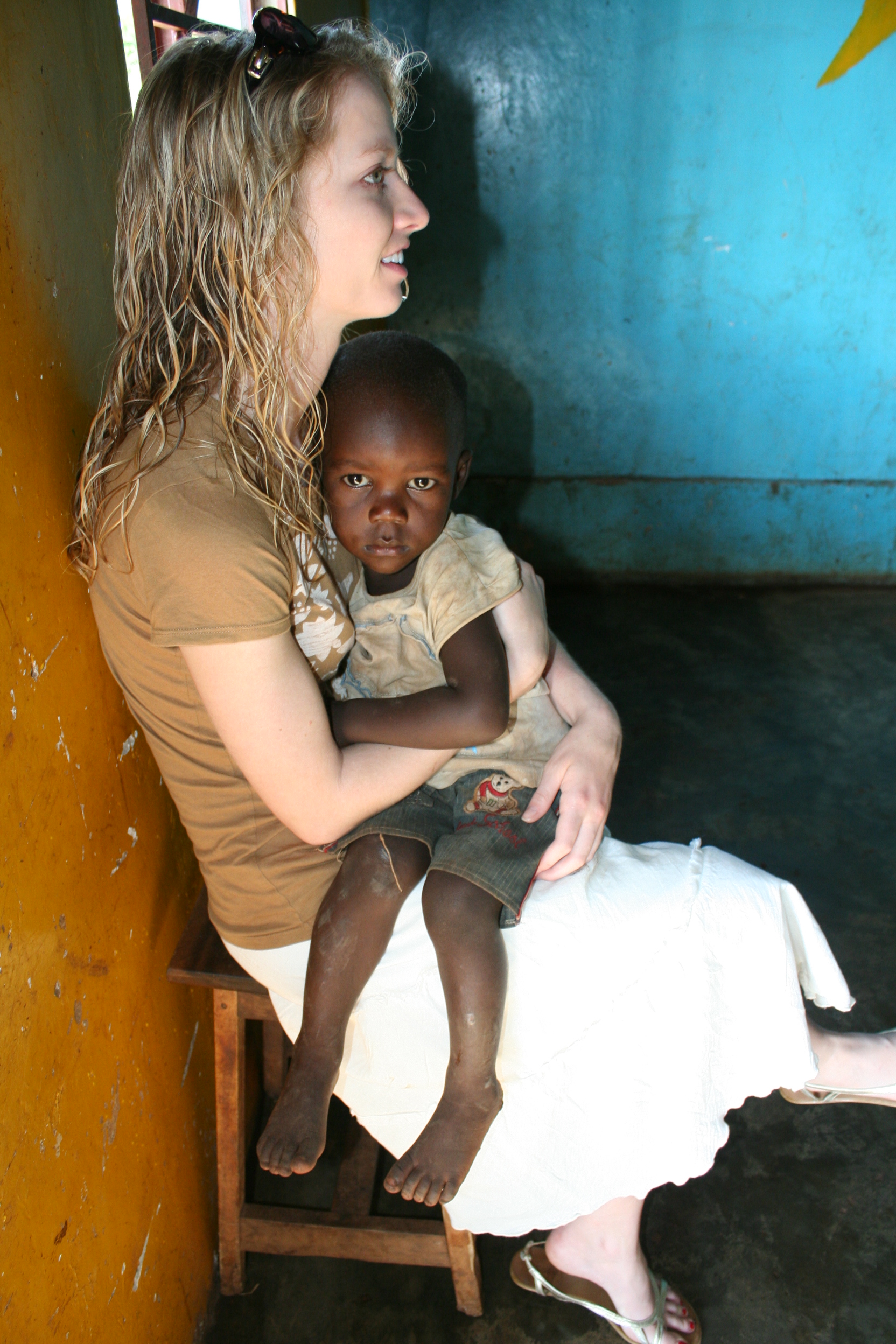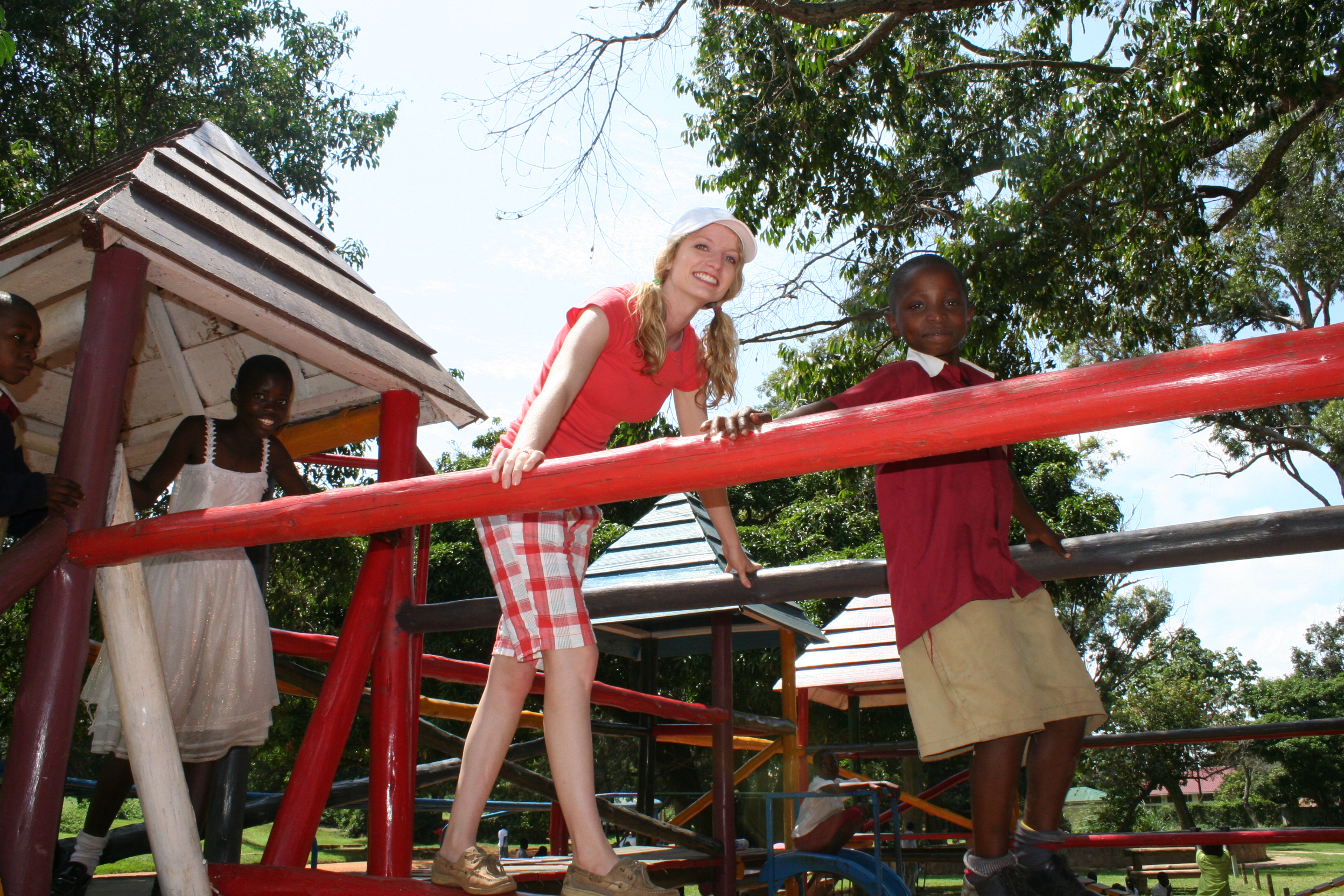Lee University grad forms nonprofit to help children in Uganda
Friday, January 1, 1904
 Simone Plimpton, 22, a Lee University graduate, is surrounded by children from Simone's Kids. Plimpton started her nonprofit in Uganda in 2010. The mission is to provide African children proper nutrition, housing and education. Plimpton is raising money to build an orphanage with a private school in the town of Nakaseke, in central Uganda.
Simone Plimpton, 22, a Lee University graduate, is surrounded by children from Simone's Kids. Plimpton started her nonprofit in Uganda in 2010. The mission is to provide African children proper nutrition, housing and education. Plimpton is raising money to build an orphanage with a private school in the town of Nakaseke, in central Uganda.ABOUT SIMONE'S KIDSA nonprofit dedicated to helping orphans in Nakaseke, a town in central UgandaStarted in 2010 to raise money for a school; now raising money to build an orphanage and a new schoolOnline: www.simoneskids.com; www.facebook.com/simoneskidsUGANDAPopulation: 34.6 millionSlightly smaller in size than OregonInfant mortality rate: 62.47 deaths per 1,000 live birthsLife expectancy: 53 yearsPeople living with HIV/AIDS: 1.2 million35 percent of the population lives below the poverty lineSource: CIA World Factbook
Simone Plimpton rode in a white van with her father, sister, a couple of friends and the man in charge of the School of Hope on a 40-minute drive along a bumpy dirt road to Nakaseke, a town in central Uganda.
On arriving, she stepped out of the van to see dozens of children lined up against the wall of the small school, all staring at her. As she walked past them, some tried to hold her hand; others were unsure of the young blond woman visiting them.
For Plimpton, 22, that day in 2010 was when she fell in love with the children she now calls Simone's Kids. She chose that name for her nonprofit, she said, to give them a sense of belonging.
They are the same children who now rush to her van when she visits and who fight to hold her hands and arms.
Since she was a little girl, she knew she wanted to start her own nonprofit, said the recent business administration graduate from Lee University. She remembers being 12 and hearing at a Christian youth rally about a 3-year-old boy in India who was nursing from a dog.
"It broke me," she said. "I knew I had to help."
She went home and took down a world map her father had up on the wall, laid it on the floor and started pinning colored tacks on the places she planned to build orphanages: South America, Africa, China.
"I was feeling adventurous," she said with a chuckle.
Plimpton is part of a nationwide trend involving Millennials, those born between the early 1980s and mid-1990s.
Cheaper airline flights and technology have helped young people feel more connected with their global counterparts, said Mary Galeti. Age 29, she is vice chairwoman of the Tecovas Foundation, a Philadelphia-based foundation that focuses on educational and economic change.
Millennials also grew up in a universe where their voices and leadership have been touted as important, said Galeti.
"Rather than waiting for an opportunity to do something, they are going out and starting their own organization," she said.
There is no data on how many teens or young adults have started nonprofits, but anecdotal evidence suggests the number is increasing, said Dan Siegel, co-founder of YouthGive, a California organization that works with young people.
The total number of nonprofits in the U.S. grew 31.5 percent from 1999 to 2009, to about 1.6 million, according to the National Center for Charitable Statistics. Siegel believes a growing number of young people are contributing to the upswing.
Plimpton officially started Simone's Kids three years after she first visited the orphans in 2007, while she was still in high school.
In 2010, Kayiire Godfrey, who founded the Nakaseke school, emailed Plimpton. He said he was about to lose the school that houses about 300 kids --170 orphans -- if he didn't find $500 to pay rent.
She thought she could raise the money, and she did, within six weeks of reaching out to friends and family, mainly through Facebook.
Technology such as social networking has become another tool particularly beneficial to the younger generation of social entrepreneurs, Siegel said.
"Media, new technology, is making social activism more available and effective for young people," he said. "It widens their networks where they can share videos, stories and fundraising projects [to] have a much greater impact."
Parents can play a significant role in activism as well, Siegel said.
Plimpton, for instance, grew up in an environment of global missions, said her father, Greg Plimpton. Her older sister went on 10 mission trips before she graduated from high school. But Simone Plimpton was the only one of five children who really focused on wanting to have her own long-term impact, he said.
"She grew up believing it was part of her personal responsibility to the world," he said.
She has lupus, a long-term autoimmune disorder, but it's something she doesn't tell people, her father said, because she wouldn't want to be treated differently because of it.
"She's just an amazing kid," he said. "She just keeps going."
Plimpton now is raising money to build a new school with a cafeteria, a clinic and dormitories in Nakaseke. She bought three acres of land and hired local people to start a garden so the town's children would have access to healthier food, she said.
To run the school for a year, she needs 40 sponsors, each contributing $12 a month; she has 10.
She is also working to get the children uniforms, which cost about $8 each, and to make sure they have medical care, especially malaria medication. Last year, two children died because they lacked the $2 medication, she said.
"I was angry and sad," Plimpton said, her eyes watering. "A cup of coffee costs more than that."

